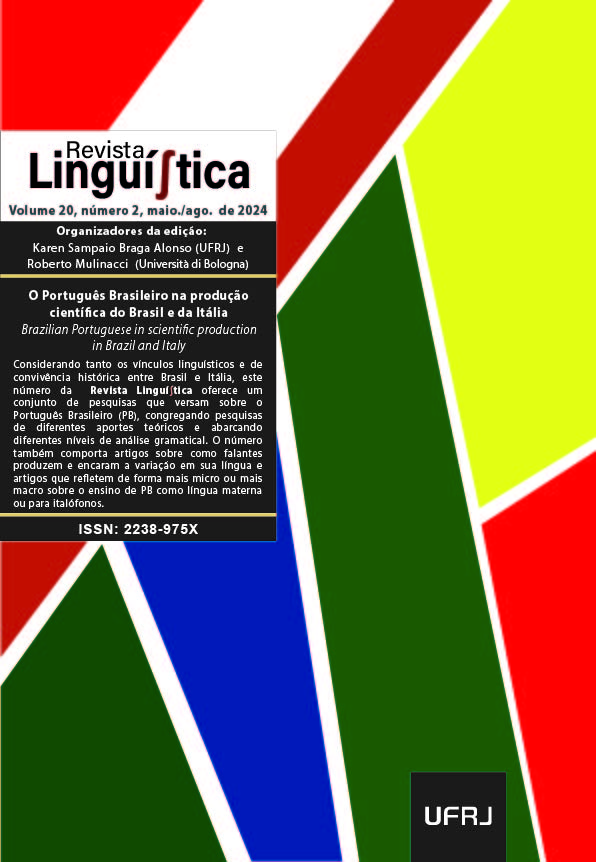“Eu tinha trago um cigarro antes que tivesse chego em casa”: a study on the emergence of new past participle forms in Brazilian Portuguese
DOI:
https://doi.org/10.31513/linguistica.2024.v20n2a64479Abstract
This study examines the variation of past participle forms in Brazilian Portuguese (BP), aiming to explain the emergence and use of innovative forms such as trago and chego. Research on BP (Barbosa, 1993; Lobato, 1999; Silva, 2008; Miara, 2013) has shown that speakers tend to prefer irregular forms when producing innovative past participle forms. To achieve the objectives of the study, two experiments (one on production and another on evaluation) were conducted with young university speakers. The theoretical framework combines the principles of Variationist Sociolinguistics (Weinreich, Labov, and Herzog, 1968) and Exemplar Models (Bybee, 2001, 2010; Pierrehumbert, 2003, 2016). By integrating the results of both experiments, it is possible to argue that the emergence of new participle forms is due to an analogy process, whereby existing forms in the language (chego and trago) are integrated into more robust networks of participle forms (pego and pago), considering their phonetic similarity (presence of the consonant [ɡ]) and the fact that they are already established items in the language (verbs in the first person singular present indicative form). Additionally, the non-stigmatized evaluation of these innovative forms among speakers with higher education levels might act as a propagation factor for these forms within the speech community.
Keywords: Participle. Variation and change. Exemplar Model.
Downloads
Published
Issue
Section
License
Copyright (c) 2025 Revista Linguí∫tica

This work is licensed under a Creative Commons Attribution-NonCommercial 4.0 International License.
Authors who publish in the Revista Linguí∫tica agree with the following terms:
The authors maintain their rights, ceding to the journal the right to first publication of the article, simultaneously submitted to a Creative Commons license permitting the sharing with third-parties of published content as long as it mentions the author and its first publication in the Revista Linguí∫tica.
Authors may enter into additional agreements for the non-exclusive distribution of their published work (for example, posting in online institutional or non-profit repositories, or book chapters) so long as they acknowledge its initial publication in the Revista Linguí∫tica.

The journal Revista Linguí∫tica is published by the Post-Graduate program in Linguistics of UFRJ and employs a Creative Commons - Attribution-NonCommercial 4.0 International (CC-BY-NC).









